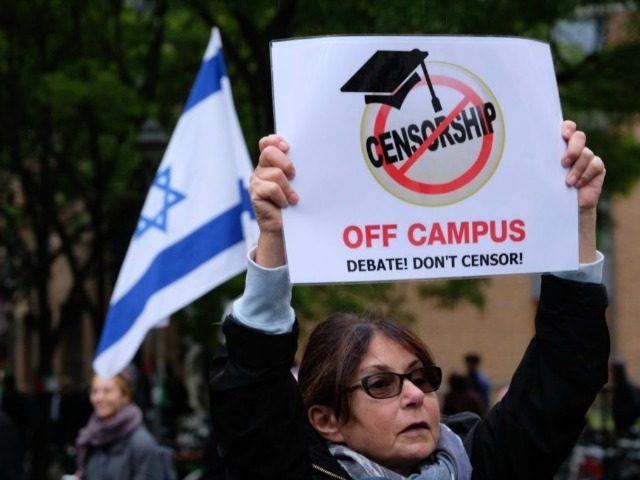The president of Wesleyan University in Middletown, Connecticut, argued in favor of safe spaces in a recent op-ed, suggesting that they “promote intellectual diversity” and remove “the threat of harassment or intimidation.” Campus climates across the country after the spread of safe spaces, however, have shown an increase in sensitivity, hostility, and Groupthink among students, leaving conservative students to bear the brunt of “safe space policies.”
Wesleyan University President Michael S. Roth defended college “safe spaces” in a recent New York Times op-ed, arguing that while the concept of a safe space can be taken too far, “it still underlies the university’s primary obligations,” and that schools should prioritize them, in order to “promote intellectual diversity.”
Roth maintains that it is a school’s priority to take the “conscious steps to protect and nurture students emotionally as well as physically should be welcome” in order to prevent perpetuating “environments where the entitled continue to dominate those around them and students never learn how to build a more equitable, inclusive community.”
“We must promote intellectual diversity in a context in which people can feel safe enough to challenge one another,” says the university president. “Students should be able to participate in argument and inquiry without the threat of harassment or intimidation.”
In his op-ed, the university president goes on to acknowledge critics of safe spaces, describing them as people who “claim to worry about the preservation of free speech on campus,” as well as the likelihood of safe spaces encouraging “the isolation of groups of students from questions that might take them outside their comfort zones.”
To a certain extent, the university president agrees with safe space critics, stating that “throughout American culture, groups are enclosing themselves in bubbles that protect them from competing points of view, even from disturbing information,” and acknowledging that safe spaces have actually resulted in the “counterproductive coddling of students who feel fragile.”
“Instead of teaching young people to find resources in themselves to deal with chagrin and anxiety, some school officials offer hand-holding, beanbags and puppies,” concedes Roth.
But nevertheless, the university president insists that the “outright dismissal of safe spaces can amount to a harmful disregard for the well-being of students,” arguing that safe spaces would be an effective tool if colleges and universities began “destigmatizing the notion of safe spaces and stop talking about them as if they were part of a zero-sum ideological war.”
But for many students, safe spaces have, in fact, evolved into zero-sum games, fostering what appears to only be a growing intolerance for conservatives, as well as abetting the ever-expanding Groupthink on campus, while the concept of “intellectual diversity” becomes increasingly elusive.
In 2017, for example, conservative students at Fordham University were kicked out of an on-campus coffee shop over their “Make America Great Again” hats after an employee cited a “safe space policy” as her justification for doing so.
Last year, students and staff at American University called for racially segregated “spaces” on campus in the name “inclusion.” Earlier this year, the Texas State University student government voted to blacklist Turning Point USA from campus, arguing — ironically — that they were censoring the conservatives’ speech in the name of “freedom of speech” and “safety.”
Unfortunately, there is no shortage of examples to pull from when citing evidence of safe spaces not having promoted intellectual diversity. Conversely, the general climate on campuses across the country — post-inception of safe spaces — seems to have grown in hostility, as students appear more sensitive and prone to outrage over even the most mainstream subjects.
You can follow Alana Mastrangelo on Twitter at @ARmastrangelo, on Parler at @alana, and on Instagram.

COMMENTS
Please let us know if you're having issues with commenting.